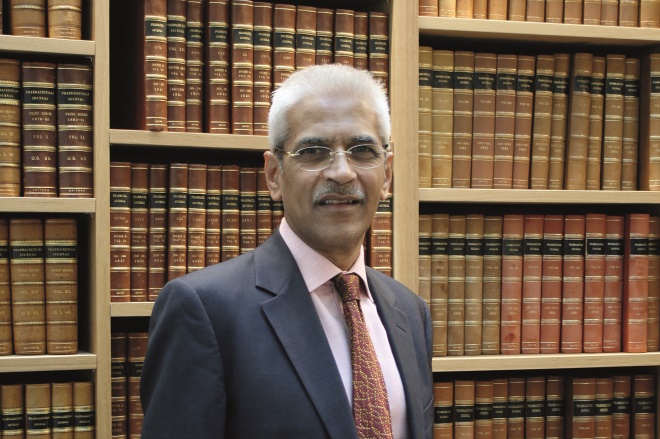
Shutterstock.com
The latest report from the General Pharmaceutical Council on the preregistration exam is disturbing reading for all pharmacists, employers and academic staff. It shows large differences in pass rates for minority groups, such as black candidates — a trend that has been allowed to continue for too many years in my opinion. To put this into context, for the exam in June 2018, the gap between pass rates for white and black candidates is 26.3 percentage points.
A GPhC investigation in 2016 found various possible reasons for the differences in performance in black candidates in the preregistration exam, such as feelings of isolation, greater family responsibilities and examples of “explicit prejudice” reported by candidates. However, as pointed out in a recent editorial from The Pharmaceutical Journal
, it is vital that the route into pharmacy is fair and that every candidate can have faith and confidence that they will be supported to do their best. It is clear this is not happening for many black pharmacists — and this should be a wakeup call for our profession.
I am wary of making sweeping statements about any particular minority group. BAME (Black and minority ethnic) groups are often banded together as one (and not just in the world of pharmacy). This can be often misleading and considerably distort the reality and truth around the issues that individual minority ethnic groups actually face, and perhaps nowadays more so amongst the black African and African Caribbean communities. Similarly, as with any ethnic grouping, black pharmacists are very diverse and heterogeneous in composition, often presenting much complex and deeper issues than one would originally perceive.
Of course, there is more needed to learn, understand and to provide the necessary support for black pharmacists — both at undergraduate and foundation level and beyond through to senior levels as one progresses through their career path. But after more than two decades teaching pharmacy students from a range of backgrounds, it is clear to me that pharmacy as a profession (which I’m forever proud of) has some hard questions to ask itself, particularly around graduate and preregistration training. And I intend to ask some of them here from a personal viewpoint.
For instance, do academic and pharmacy tutors truly understand the needs and challenges of their black students, and if they do, are there the resources and tools to provide the necessary support for them? Perhaps it is time to admit the generalised support system is not working and to look at a more tailored and structured support system for all students, with possibly more intensive support at an earlier stage for black students.
How many pharmacists and academics have undergone the often online or otherwise mandatory training programmes for equality and diversity, and importantly how many remember it and put it into practice regularly? Perhaps we need to be more imaginative and have a BAME champion academic pharmacist at every department/school of pharmacy instead and encourage universities to recognise excellence among BAME students by assigning champions to each academic year.
Do black students access and even manage to secure voluntary placements in pharmacies in holiday periods as much as others? And what about hospital placements? All these can prove vital in terms of consolidating pharmacy knowledge and building up confidence levels. It must be possible to work with the larger multinationals and hospital trusts to ensure those of BAME origin are offered at least one week long placement in the year. Again perhaps to have a BAME pharmacy champion in the different sectors. Admittedly, this may not guarantee to level the playing field but it would at least be a start and a foundation to build upon.
Will we ever see a black pharmacist at any of the national RPS boards or even as president? Why not? The RPS continues to strive actively to support its members and perhaps at times there needs to be a more broader understanding that may even involve starting from grass roots level to show what it takes to become a worthy candidate to stand as a board member and even as the president – emphasising that there is no gender bias and it is open to all. Perhaps all boards should hold a regular one-day clinic in their local areas for those of BAME groups to meet and discuss leadership roles and holding positions of higher responsibilities. Some highly successful black pharmacist role models are out there in different disciplines – can we also develop a means of sharing their learning wider to organisations such as the Local Pharmacy Forums for example and ask them to actively consider and recruit those of black minority origin where there are none identified? Perhaps there is an opportunity for structured mentorship?
These are just some ideas about how to tackle this problem, and I am sure that some will disagree with some (if not all) of what I am suggesting. I don’t claim to speak for pharmacists who are black, or even pharmacists of my own South Asian Indian ethnic origin, so I would be very keen to hear differing views on this topic. However, I felt it was important to start the discussion; to begin to talk about how as a profession we approach this issue – the elephant is not just in the room, but also throughout the whole career pathway.
Finally, is it time for other healthcare professions perhaps also to look at their landscapes in a similar light?

Mahendra Patel is an academic and pharmacist. He is a a fellow of the National Institute for Health and Care Excellence and principal enterprise fellow of pharmacy at the University of Huddersfield. He is also an adjunct professor of pharmacy at Wilkes University Pennsylvania, USA; honorary senior lecturer at the Academic Unit Primary Care Medical School at the University of Sheffield; an ambassador for NHS Evidence and board member of the Royal Pharmaceutical Society.
Declarations
Personal views and observations
Academic and pharmacist of South Asian origin
You may also be interested in
The importance of diverse clinical imagery within health education

Entrustable professional activities: a new approach to supervising trainee pharmacists on clinical placements
